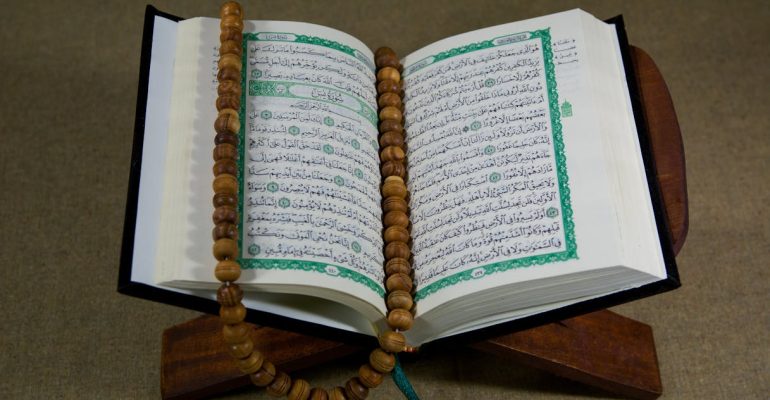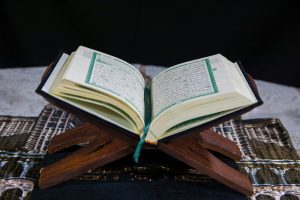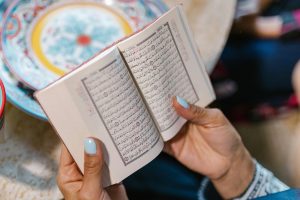Unraveling the Mysteries: When Was the First Quran Revealed?
March 25, 2024 2024-03-26 8:40Unraveling the Mysteries: When Was the First Quran Revealed?
Unraveling the Mysteries: When Was the First Quran Revealed?
Prophet’s Quran Revelation, holds profound significance for Muslims worldwide. One of the most intriguing aspects of the Quran is its revelation, a pivotal event in Islamic history. In this comprehensive guide, we delve into the timing and circumstances surrounding the first revelation of the Quran. From the auspicious month of Ramadan to the revered 27th night, we uncover the mysteries surrounding this sacred event.
When Was the First Quran Revealed?
The Divine Encounter in the Cave of Hira
The revelation of the Quran constitutes a pivotal moment in Islamic history, signifying the commencement of divine guidance for humanity. According to Islamic tradition, the first verses of the Quran were revealed to the Prophet Muhammad (peace be upon him) in the solitude of the cave of Hira, situated near the holy city of Mecca.
Contextual Significance: Seventh Century CE
The timing of the Quran’s revelation during the seventh century CE is significant within the broader historical context. The Arabian Peninsula, where Mecca is located, was characterized by a society embroiled in ignorance, idolatry, and moral decay. Against this backdrop of spiritual darkness, the Quran emerged as a beacon of light, illuminating the path towards truth, righteousness, and guidance.
Revelation During Ramadan: The Sacred Month
Furthermore, Islamic tradition holds that the revelation of the Quran occurred during the month of Ramadan, the ninth month of the Islamic lunar calendar. Ramadan holds special significance in Islam as a month of fasting, prayer, and spiritual reflection. The revelation of the Quran during this sacred month underscores the profound connection between divine guidance and the act of self-discipline and devotion.
Was the Quran Revealed in Ramadan?
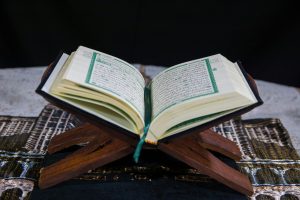
Significance of Ramadan in Islamic Tradition
Indeed, the Quran’s revelation took place during the month of Ramadan, a sacred period in the Islamic calendar. Ramadan is the ninth month of the Islamic lunar calendar, known for fasting, prayer, reflection, and spiritual rejuvenation.
Commemoration of the Revelation
Muslims worldwide commemorate the revelation of the Quran during this auspicious month, which holds immense spiritual significance. It is a time when believers engage in heightened acts of worship, seeking closeness to Allah through fasting from dawn until dusk, increased recitation of the Quran, additional prayers known as Taraweeh, and acts of charity.
Spiritual Rejuvenation and Connection
The revelation of the Quran during Ramadan underscores the profound connection between this sacred text and the spiritual atmosphere of the month. It is believed that during Ramadan, the heavens are open, and divine mercy descends upon those who seek it earnestly. Muslims view the Quran as a source of guidance and light, and its revelation during Ramadan enhances the spiritual significance of this blessed month.
Was the Quran Revealed on 27th Ramadan?
The Night of Decree: Laylat al-Qadr
Among the numerous nights of Ramadan, one holds particular reverence among Muslims—the Night of Decree (Laylat al-Qadr).
Belief in the Revelation on the 27th Night
Islamic tradition holds that the Quran’s revelation began on this blessed night, often believed to fall on the 27th night of Ramadan.
Spiritual Significance
This night is described in the Quran as better than a thousand months, signifying its immense spiritual importance. It is a time when Muslims fervently seek the blessings of Allah, engage in prayer, recite the Quran, and seek forgiveness for their sins.
Seeking Divine Mercy
Believers spend the Night of Decree in deep reflection and worship, hoping to attain the rewards and blessings promised by Allah during this auspicious time.
What Age Was the Quran Revealed?
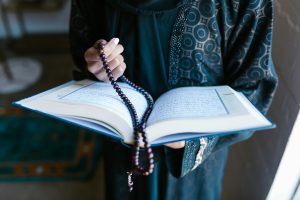
The Prophet Muhammad’s Early Forties
The Quran’s revelation occurred when the Prophet Muhammad (peace be upon him) was in his early forties.
Period of Reflection
Before receiving the divine revelation, Muhammad spent much time in solitude, contemplating the spiritual and moral dilemmas of his society.
The Encounter in the Cave of Hira
It was during one such period of reflection in the cave of Hira that the angel Gabriel appeared to him, conveying the first verses of the Quran. This encounter marked the beginning of a divine mission that would transform the course of history and shape the beliefs and practices of millions of people worldwide.

